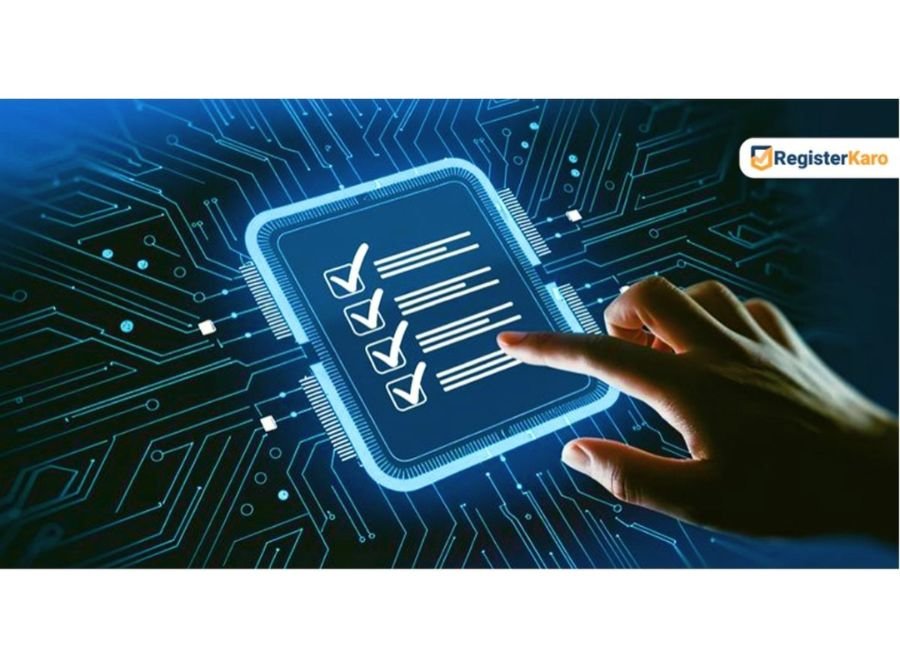Startup Essentials: Your Compliance Checklist for New Businesses in India
Starting a business in India? From FSSAI to Trade License, this essential checklist covers the legal compliances every founder must follow to avoid penalties and build a solid foundation.
RegisterKaro
Embarking on a new business venture in India is an exhilarating journey. However, amidst the excitement of developing your product or service, crafting a marketing strategy, and building your team, it's crucial not to overlook the foundational legal and regulatory compliances. Neglecting these "startup essentials" can lead to hefty penalties, operational hurdles, and even the premature closure of your dream.
This comprehensive guide will walk you through the non-negotiable compliance requirements for new businesses in India, focusing on key licenses that often trip up budding entrepreneurs.
Why Compliance is Your Startup's First Step
Before you even think about your first customer, ensuring your business is legally sound offers immense benefits:
- Avoid Penalties: Non-compliance can result in significant fines and legal action, impacting your limited startup capital.
- Build Credibility: Proper registration and licensing signal professionalism and trustworthiness to customers, investors, and partners.
- Access Opportunities: Many government schemes, loans, and even private investment opportunities require your business to be fully compliant.
- Smooth Operations: A legally compliant business operates without the constant fear of shutdowns or inspections, allowing you to focus on growth.
The Foundational Pillars of Compliance
While the specific licenses you need can vary based on your industry and business model, some registrations are universally critical or highly common.
1. Business Structure Registration (Company, LLP, Proprietorship, etc.)
This is the very first step. Deciding your business entity (e.g., Private Limited Company, Limited Liability Partnership, Sole Proprietorship, Partnership Firm) will dictate subsequent registrations, tax implications, and legal liabilities. This process typically involves obtaining a Digital Signature Certificate (DSC), Director Identification Number (DIN), and then filing with the Ministry of Corporate Affairs (MCA) or Registrar of Firms.
2. GST Registration (Goods and Services Tax)
For most businesses exceeding a certain turnover threshold (currently ₹40 lakhs for goods and ₹20 lakhs for services in most states, with lower limits for special category states), GST registration is mandatory. Even if you're below the threshold, voluntary GST registration offers benefits like claiming Input Tax Credit (ITC) and conducting inter-state transactions seamlessly.
Critical Industry & Local Licenses: Don't Overlook These!
Beyond the initial business and tax registrations, two licenses frequently pop up for physical establishments and food-related businesses, respectively.
A. FSSAI License: The Food Safety Seal of Approval
If your business involves any aspect of food manufacturing, processing, storage, distribution, selling, or even serving, you need an FSSAI license. The Food Safety and Standards Authority of India ensures that all food businesses adhere to strict hygiene and quality standards, protecting consumers and fostering trust.
Who Needs an FSSAI License?
From a small home-based catering service or cloud kitchen to a large restaurant chain, a food processing unit, or even an e-commerce platform selling food products, if food is part of your operation, FSSAI compliance is non-negotiable.
Types of FSSAI Licenses:
The type of FSSAI license required depends on your business's scale and turnover:
- Basic Registration: For small-scale businesses with a turnover up to ₹12 lakhs.
- State License: For businesses with turnover between ₹12 lakhs and ₹20 crores.
- Central License: For large businesses, importers/exporters, or those operating in multiple states, with turnover above ₹20 crores.
Key Documents for FSSAI (General):
- Identity and address proof of the proprietor/partners/directors.
- Proof of business premises (rent agreement, utility bills).
- Food safety management plan (for licenses).
- Blueprint/layout plan (for manufacturers).
- List of food categories and raw materials.
Ensuring you have the correct FSSAI license not only keeps you legally compliant but also boosts consumer confidence in your food products.
B. Trade License: Your Permit to Operate Locally
Operating any commercial or industrial activity within the limits of a municipal corporation or local governing body requires a Trade License. This license is issued by the municipal corporation or local Panchayat and acts as a permit allowing you to conduct specific trades or businesses from a designated premises.
Who Needs a Trade License?
Almost every physical business establishment needs a Trade License, including:
- Shops and retail outlets
- Restaurants, cafes, and hotels
- Factories and manufacturing units
- Service centers (salons, gyms, dry cleaners, clinics)
- Commercial establishments
- Street vendors (often a simplified version)
The requirement for a Trade License underscores the importance of local compliance and ensures that businesses operate safely and by local zoning and public health regulations.
Key Documents for Trade License (General):
- Identity and address proof of the applicant.
- Proof of business premises (rent agreement, property tax receipt, NOC from the owner).
- PAN Card of the individual/business.
- Certificate of Incorporation/Partnership Deed (for companies/firms).
- Site plan of the business premises.
- NOC from the Fire Department or Pollution Control Board (if applicable, based on business type).
Securing your Trade License early avoids penalties and ensures smooth operation within your local jurisdiction.
Other Important Registrations to Consider:
- Shop & Establishment Act Registration: Mandatory for shops and commercial establishments (based on state-specific rules and employee count).
- Professional Tax Registration: Required for individuals engaged in professions or employment, based on state laws.
- EPF & ESI Registration: Mandatory for businesses exceeding a certain number of employees, contributing to employee welfare.
- MSME/Udyam Registration: Voluntary but highly beneficial for Micro, Small, and Medium Enterprises to avail of government schemes and benefits.
Simplify Your Startup Journey with Expert Assistance
The regulatory landscape for new businesses in India can seem daunting. The array of required documents, the precise application processes for licenses like FSSAI and Trade License, and the varying rules across different states and municipalities can be a significant burden for budding entrepreneurs.
To ensure your startup is built on a solid foundation of legal compliance, without getting bogged down in paperwork, consider leveraging professional assistance. Experts at RegisterKaro specialize in navigating these complexities, providing end-to-end support for your FSSAI and Trade License applications, alongside all other essential registrations. This allows you to focus your energy on what truly matters: growing your business.
Don't let compliance be an afterthought. Make it a priority, and give your new venture the best possible start in the vibrant Indian market.












